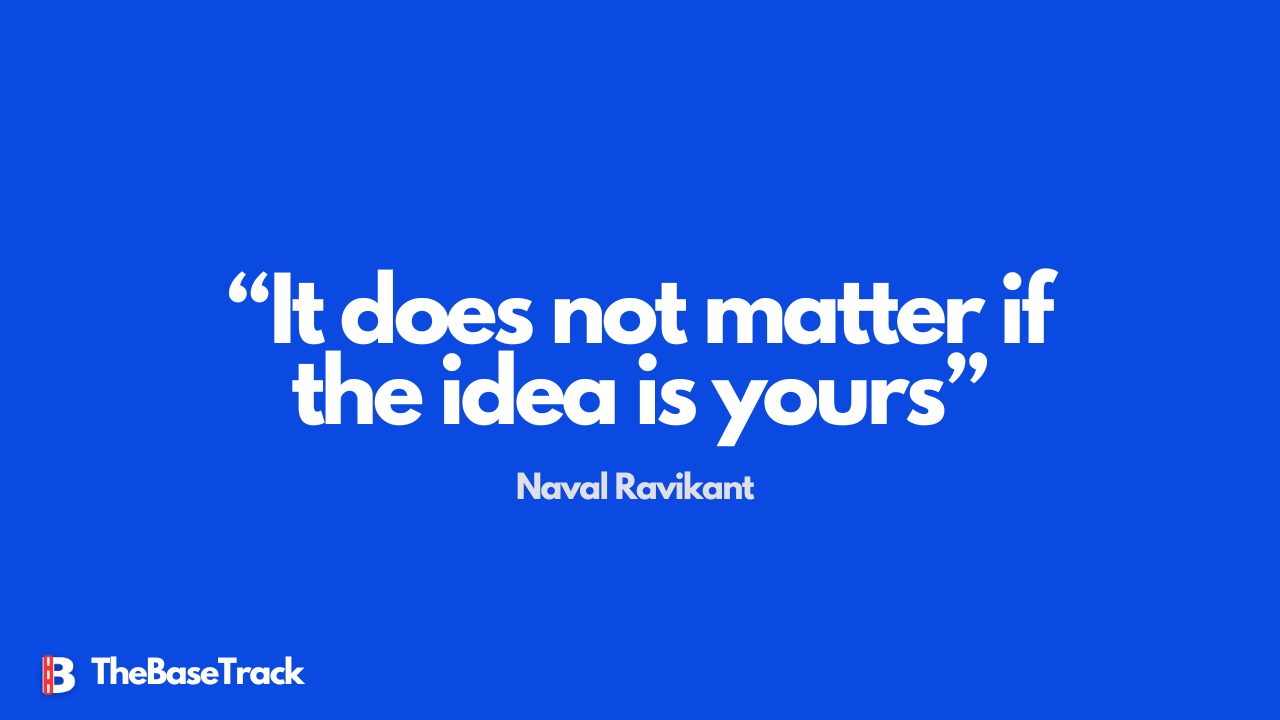Bit #1: It does not matter if the idea is yours

"𝗜𝘁 𝗱𝗼𝗲𝘀 𝗻𝗼𝘁 𝗺𝗮𝘁𝘁𝗲𝗿 𝗶𝗳 𝘁𝗵𝗲 𝗶𝗱𝗲𝗮 𝗶𝘀 𝘆𝗼𝘂𝗿𝘀"
The latest insight I learned from Naval Ravikant is that "It does not matter if the idea is yours".
𝗗𝗼𝗻'𝘁 𝘁𝗿𝘆 𝘁𝗼 𝗶𝗻𝘃𝗲𝗻𝘁 𝘀𝗼𝗺𝗲𝘁𝗵𝗶𝗻𝗴 𝗻𝗲𝘄 𝗶𝗳 𝘆𝗼𝘂 𝗱𝗼𝗻'𝘁 𝗸𝗻𝗼𝘄 𝗵𝗼𝘄 𝘁𝗵𝗶𝗻𝗴𝘀 𝗰𝘂𝗿𝗿𝗲𝗻𝘁𝗹𝘆 𝘄𝗼𝗿𝗸. It is useful in a way when you're just getting started on a journey, and are on your way to mastery.
"𝗬𝗼𝘂 𝗱𝗼 𝗻𝗼𝘁 𝘄𝗮𝗻𝘁 𝘁𝗼 𝘄𝗶𝗻 𝗮𝗻 𝗮𝗿𝗴𝘂𝗺𝗲𝗻𝘁. 𝗬𝗼𝘂 𝘄𝗮𝗻𝘁 𝘁𝗼 𝘄𝗶𝗻." - Nassim Nicholas Taleb. The goal of acquiring new mental models is not to contradict what things currently are, but to sharpen your judgement in the long term, so you can make decision better and better over time, what you should pursue is truth-seeking not contradicting.
𝗦𝗵𝘂-𝗵𝗮-𝗿𝗶. This made me think about a Japanese concept I learned earlier - 'Shuhari'. That is to Obey - Detach - Separate (Shu-ha-ri). The core implication of the concept is “to make rules, you need to learn the rules first.” - Grasp the foundation first, then either break it or make it.
𝗧𝗵𝗲 𝗿𝗼𝗼𝘁 𝗰𝗮𝘂𝘀𝗲 𝗶𝘀 𝗲𝗴𝗼. I can confidently tell I'm an open-minded person, but sometimes I let my ego get in the way of my decisions. Because of that, I usually skipped to the “Ri” part of Shuhari process way too quickly, and always tried to make everything unique and mine, even when doing blogging, as if idea collecting is an zero-sum game - I think this is detrimental for my learning process.
𝗛𝗮𝗿𝗻𝗲𝘀𝘀 𝗲𝗴𝗼. I’m not a fan of advice that tells you to drop your ego - I think it's absurd. However, I think it's important to be aware of your ego and emotions (a.k.a self awareness), because ego and emotions can potentially cloud your perception of reality and restrict you from acquiring new mental models from others.𝗜𝗻𝘁𝗲𝗿𝗻𝗮𝗹𝗶𝘇𝗶𝗻𝗴 𝘁𝗵𝗶𝘀 𝗶𝗱𝗲𝗮.
I think this idea is worthwhile to make it a part of me. I've been thinking about some habits to practice:
- (𝟭) Quoting other authors more often
- (𝟮) Reading and taking notes more
- (𝟯) Actively searching for mental models that contradict my belief . Any thoughts? :)
These bits are designed for the quick digestion of key insights that can improve your decision-making in Product Operations through mental models that worked.
I plan to share 1-2 bits a week, so please stay tuned!




